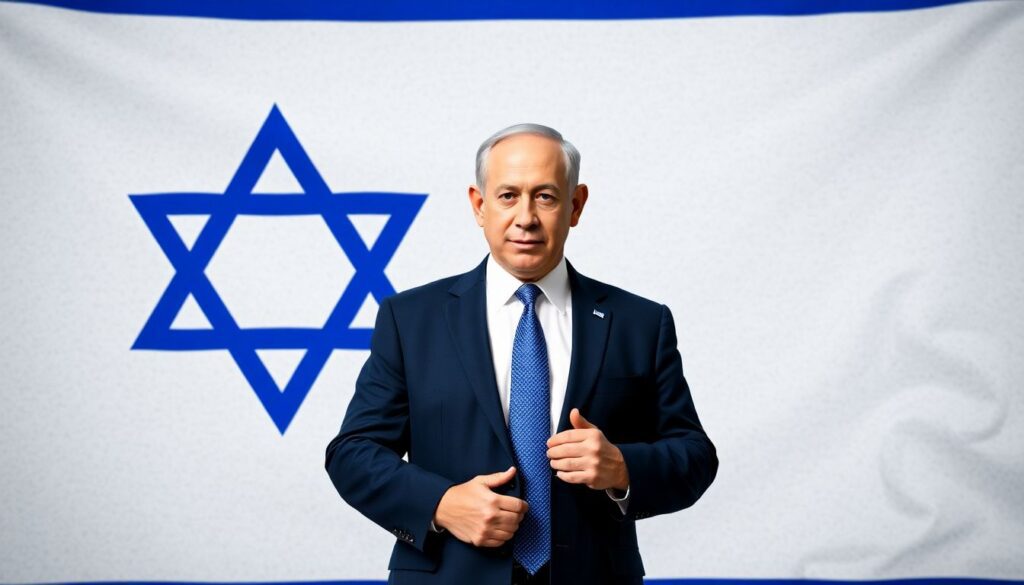Welcome to this in-depth exploration of Benjamin Netanyahu’s leadership and its impact on Israel’s survival. This article delves into the historical context, the current challenges, and the strategic decisions that have shaped Israel’s position in the global arena. Join us as we uncover the layers of Netanyahu’s leadership and its profound influence on the future of the Jewish state.
A Historical and Strategic Analysis
Imagine Benjamin Netanyahu, standing tall and resolute, his silhouette sharply outlined against the vivid backdrop of the Israeli flag. This is not just a mere image, but a symbol of unyielding fortitude and unwavering leadership. Netanyahu’s stern yet composed stance echoes his long-standing career in Israeli politics, facing challenges head-on, and navigating the nation through turbulent times.
The bold blue Star of David on the flag behind him seems to amplify his resolve, each point radiating determination. This visual doesn’t just show a leader but also a protector, steadfast in his duty, and resilient in the face of adversity. It’s an image of defiance against odds, of unwavering spirit, and of unshakeable leadership.
The stripes of the flag, white and blue, appear to converge towards Netanyahu, signifying the unity he brings to the diverse threads of Israeli society. His firm stance isn’t just physical; it’s a testament to his grit, his tenacity, and his enduring spirit as a leader. This single image encapsulates the essence of Netanyahu’s political journey, his relentless drive, and his unceasing commitment to his nation.
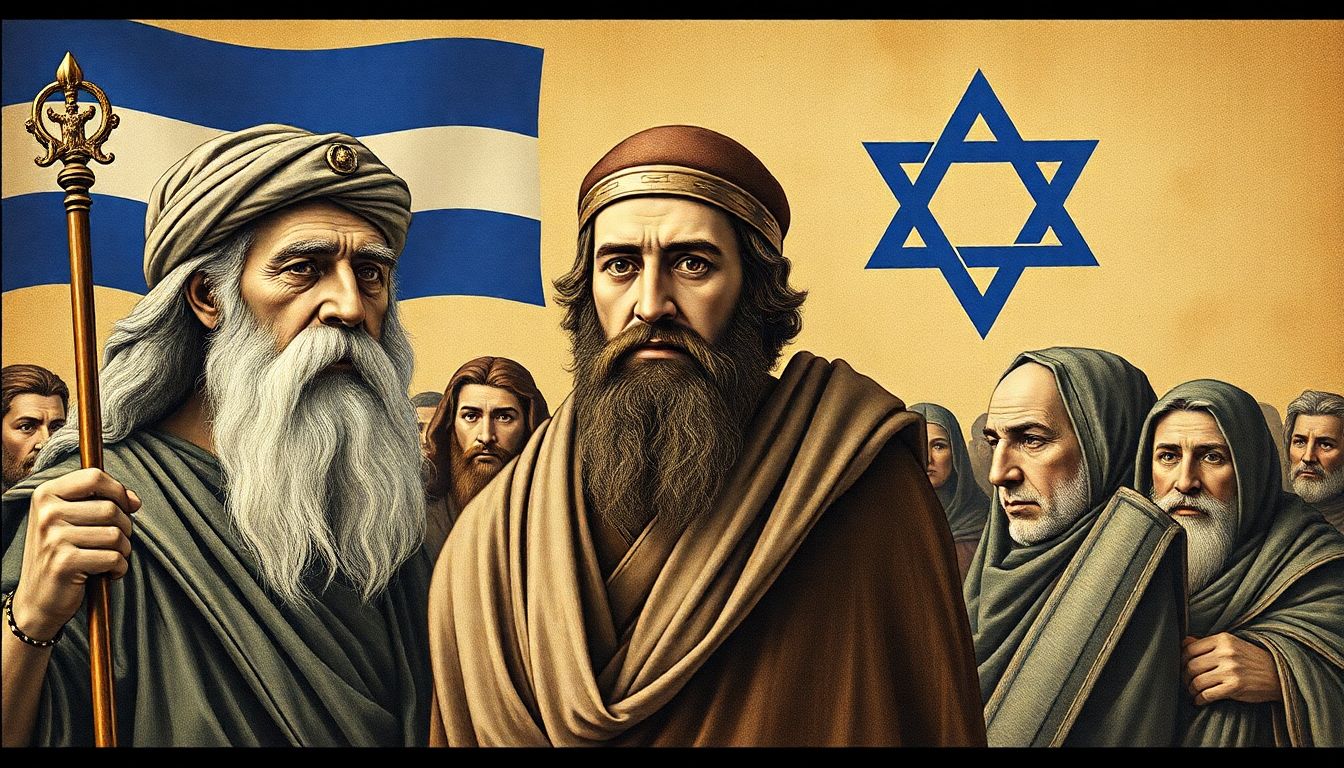
The Historical Context of Jewish Leadership
Jewish leadership throughout history has been a beacon of resilience and survival, steering the Jewish people through trials and tribulations from biblical times to the modern era. The narrative begins with the patriarchs—Abraham, Isaac, and Jacob—who laid the foundation for Jewish identity and faith. Their leadership, grounded in unwavering belief and commitment, set the stage for the enduring spirit of the Jewish people. Moses, who led the Israelites out of slavery in Egypt, exemplifies the transformative power of leadership, embodying the courage and determination that have become hallmarks of Jewish survival.
In the centuries that followed, Jewish leaders emerged to navigate the challenges posed by various empires and diasporas. During the Second Temple period, figures like Ezra and Nehemiah played pivotal roles in rebuilding the Jewish community after the Babylonian exile. The Maccabees, with their heroic revolt against the Seleucid Empire, inspired a legacy of resistance and cultural preservation, commemorated annually during Hanukkah. The resilience fostered by these leaders enabled the Jewish people to endure through countless adversities, from the Roman Empire to the Crusades and beyond.
The Middle Ages brought forth influential figures such as Rashi, whose commentaries on the Torah and Talmud remain foundational texts in Jewish scholarship. Maimonides, a renowned philosopher and physician, bridged Jewish thought with the intellectual currents of his time, fostering a tradition of intellectual rigor and adaptability. In the face of persecution and expulsion, leaders like Don Isaac Abravanel guided communities through tumultuous periods, ensuring the preservation of Jewish culture and identity.
In the modern era, Jewish leadership has continued to shape the community’s resilience and survival. Figures like Theodor Herzl, the visionary behind modern Zionism, galvanized the Jewish people towards the establishment of a Jewish state. David Ben-Gurion, Israel’s first prime minister, led the fledgling nation through its formative years, embodying the tenacity and vision that have defined Jewish leadership. Contemporary leaders, from Golda Meir to Elie Wiesel, have championed causes of justice, equality, and remembrance, ensuring that the Jewish people’s legacy of resilience endures. Through their leadership, the Jewish community has not only survived but thrived, contributing significantly to the world in areas of science, arts, and humanitarian efforts.
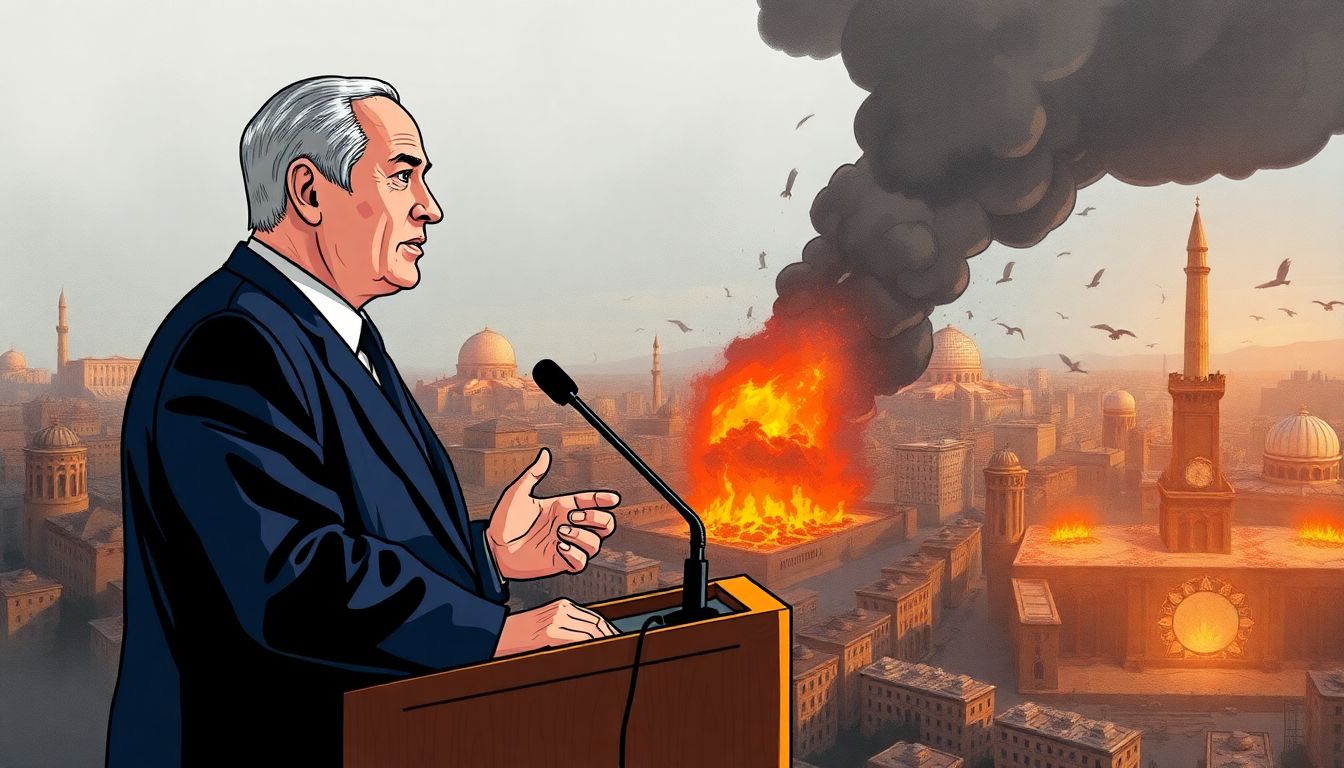
The October 7, 2023 Attacks and Netanyahu’s Response
In the early hours of October 7, 2023, the world woke up to the harrowing news of a sudden and brutal terrorist attack on Israeli soil. The Hamas-led offensive, dubbed ‘Operation al-Aqsa Flood‘, was launched from multiple points in the Gaza Strip, targeting Israeli civilian communities and military bases alike. The meticulously coordinated assault involved a combination of rocket fire, suicide bombings, and ground incursions, resulting in a devastating loss of life and widespread panic.
In response to the escalating crisis, Israeli Prime Minister Benjamin Netanyahu swiftly convened an emergency cabinet meeting. Within hours, he delivered a stern and resolute address to the nation, officially declaring war on Hamas and the Gaza Strip. Netanyahu’s speech was marked by an unyielding resolve, emphasizing Israel’s right to self-defense and its commitment to eradicating terrorist threats. ‘We will do whatever it takes to protect our people and our homeland‘, he asserted, signaling the start of what would be a full-scale military campaign.
Netanyahu’s strategic decisions in the face of the Hamas attacks reflected a deeper understanding of the regional geopolitical landscape. Recognizing the long-standing support Hamas receives from Iran, the Prime Minister took a firm stance against Iranian regional ambitions. He explicitly stated that Israel would ‘not allow Iran to entrench itself on our borders‘, indicating a willingness to confront not only Hamas but also its backers. This stance marked a significant shift in Israel’s strategic approach, highlighting a proactive rather than reactive policy.
As part of his strategic plan, Netanyahu outlined several key initiatives to counter the Iranian threat:
-
Enhanced Military Presence:
Increased deployment of Israeli Defense Forces (IDF) along the Gaza border and in the West Bank to prevent further infiltration.
-
Targeted Strikes:
Precision airstrikes on Hamas military infrastructure and key Iranian-backed facilities in the region.
-
Diplomatic Efforts:
Strengthening alliances with regional partners and international stakeholders to isolate Iran and curb its influence.
-
Cyber Warfare:
Leveraging Israel’s advanced cyber capabilities to disrupt Hamas and Iranian communications and logistics.
These measures underscored Netanyahu’s commitment to a comprehensive and multifaceted approach in safeguarding Israel’s security and sovereignty.
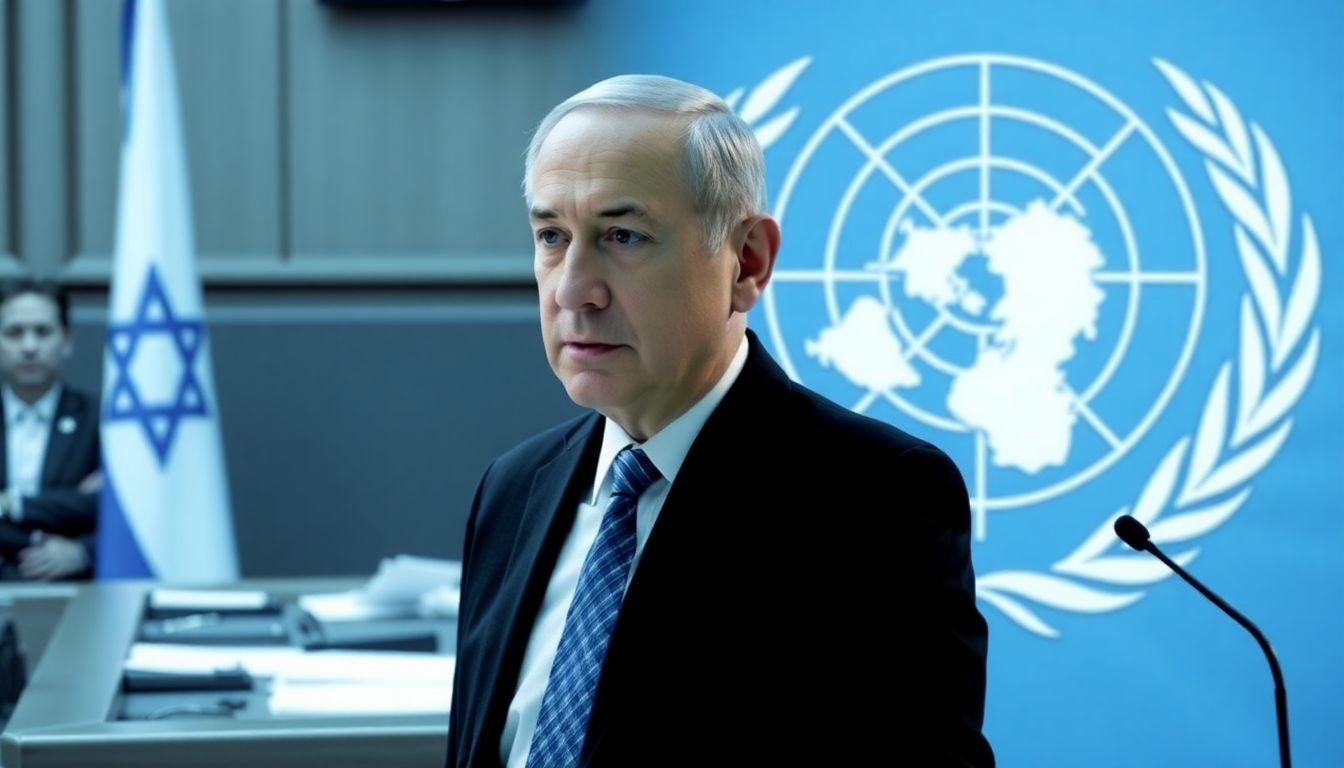
Navigating International Pressure and Personal Challenges
Benjamin Netanyahu, a political heavyweight in Israel, has faced a myriad of challenges, both from international pressure and personal legal battles. The international community has often placed Israel under a microscope, with global organizations such as the United Nations and the European Union voicing criticisms. These bodies have expressed concerns over Israel’s policies regarding settlements, the Palestinian conflict, and other contentious issues. Netanyahu, known for his staunch defense of Israel’s interests, has consistently navigated these criticisms, asserting Israel’s right to self-determination and security.
Beyond international scrutiny, Netanyahu has been entangled in ongoing legal battles that have added to his personal and political challenges. He has been indicted on charges of bribery, fraud, and breach of trust, allegations he vehemently denies. These legal woes have not only cast a shadow over his political career but have also led to widespread protests and calls for his resignation. Despite these pressures, Netanyahu has remained resilient, maintaining his focus on governance and policy-making.
Amidst these trials, Netanyahu has shown unwavering commitment to securing Israel’s future. His tenure has been marked by several key initiatives aimed at bolstering Israel’s position on the global stage. These include:
- Strengthening diplomatic ties with new allies, such as the historic Abraham Accords that normalized relations with several Arab countries.
- Fostering technological and economic growth, positioning Israel as a global innovation hub.
- Advocating for robust defense strategies to ensure Israel’s security in a tumultuous region.
Through his steadfast approach, Netanyahu has sought to carve out a secure and prosperous future for Israel, even as he grapples with the complexities of international politics and personal legal challenges. His leadership has sparked intense debate and scrutiny, both at home and abroad, yet his impact on Israel’s trajectory remains undeniable.
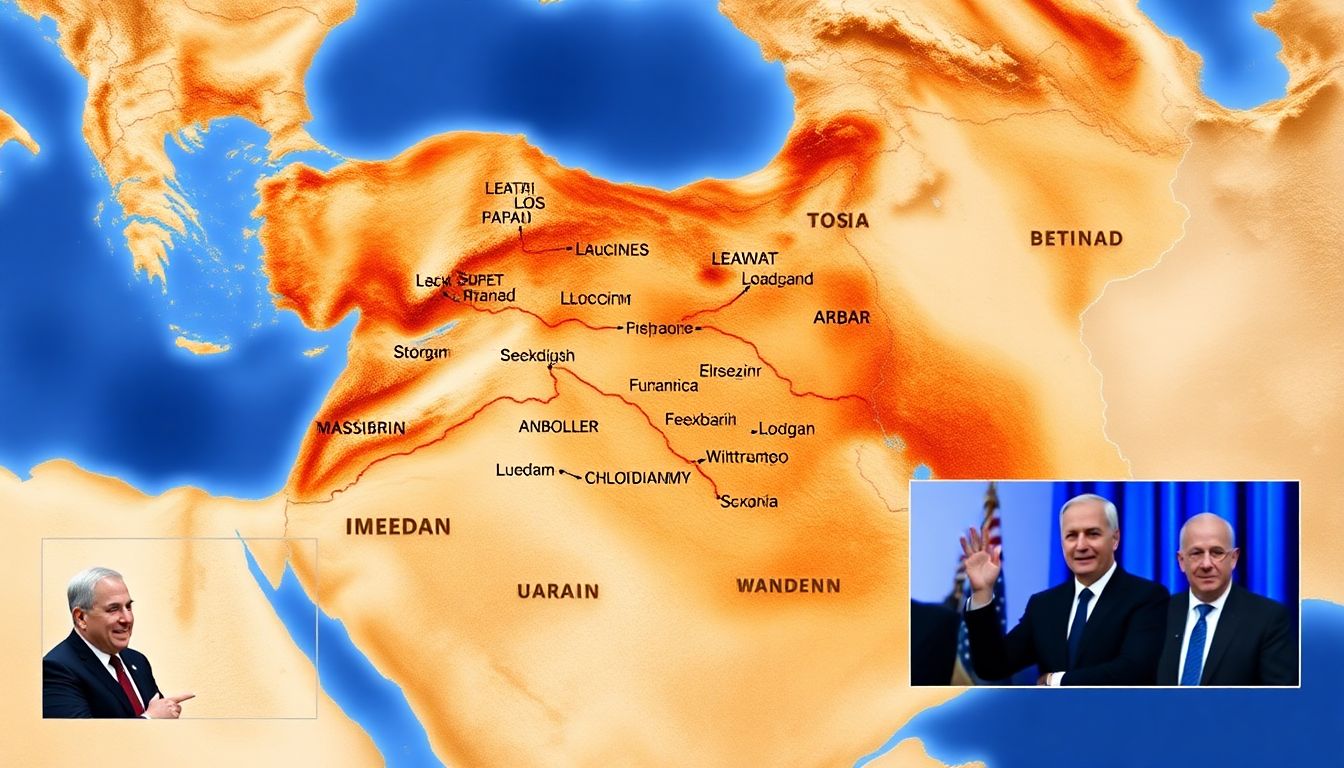
Strategic Decisions and Global Alliances
Benjamin Netanyahu, Israel’s longest-serving prime minister, has never shied away from controversial decisions, especially when it comes to his country’s security. One such contentious move was the opening of a northern front against Hezbollah in Lebanon. Netanyahu argued that this aggressive stance was necessary to curb Iran’s influence and prevent Hezbollah from acquiring advanced weaponry. Critics, however, slammed this decision, fearing it could embroil Israel in a drawn-out, devastating war. Furthermore, Netanyahu approved targeted strikes against high-profile adversaries, a policy that, while effectively neutralizing immediate threats, has drawn international scrutiny and criticism.
One of the most debated instances of this policy was the assassination of Iranian nuclear scientist Mohsen Fakhrizadeh. Israel hailed the operation as a significant blow to Iran’s nuclear ambitions, but the international community worried about the escalating tensions in the region. Tehran vowed retaliation, and the European Union expressed concern about the potential fallout. Nevertheless, Netanyahu maintained that these daring moves were essential for Israel’s survival in a hostile neighborhood.
Despite the controversy, Netanyahu’s strategies have been backed by robust global alliances. Chief among them is Israel’s enduring partnership with the United States. Washington has consistently provided Israel with crucial military aid and diplomatic support. Under Netanyahu’s tenure, this alliance flourished, with the U.S. recognizing Jerusalem as Israel’s capital and relocating its embassy there.
Beyond the United States, Netanyahu has cultivated strategic ties with other nations, further bolstering Israel’s international standing:
- India: Under Prime Minister Narendra Modi, India has deepened its defense and economic cooperation with Israel.
- Greece and Cyprus: These Mediterranean countries have formed a tripartite alliance with Israel, focusing on energy security and regional stability.
- Gulf States: In a monumental shift, the Abraham Accords normalized relations between Israel and several Gulf nations, including the United Arab Emirates and Bahrain.
These alliances have not only strengthened Israel’s position in the Middle East but also provided a counterbalance to the criticism Netanyahu’s policies have drawn from other parts of the international community.



